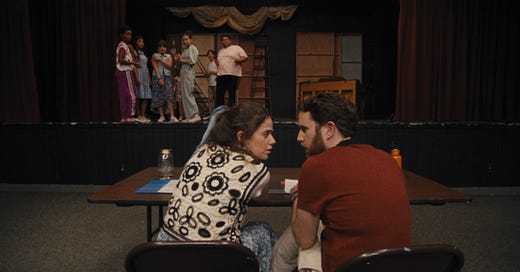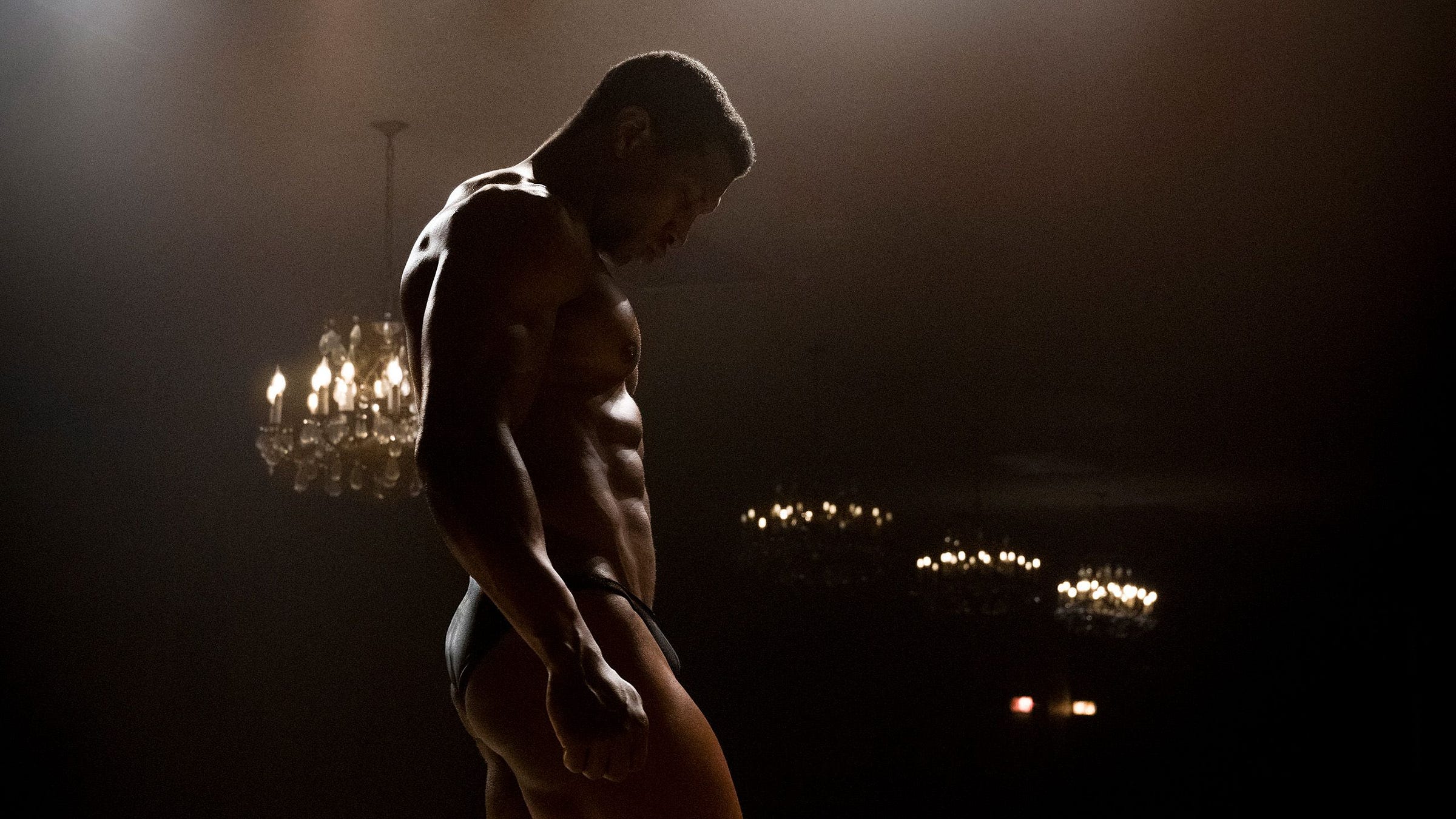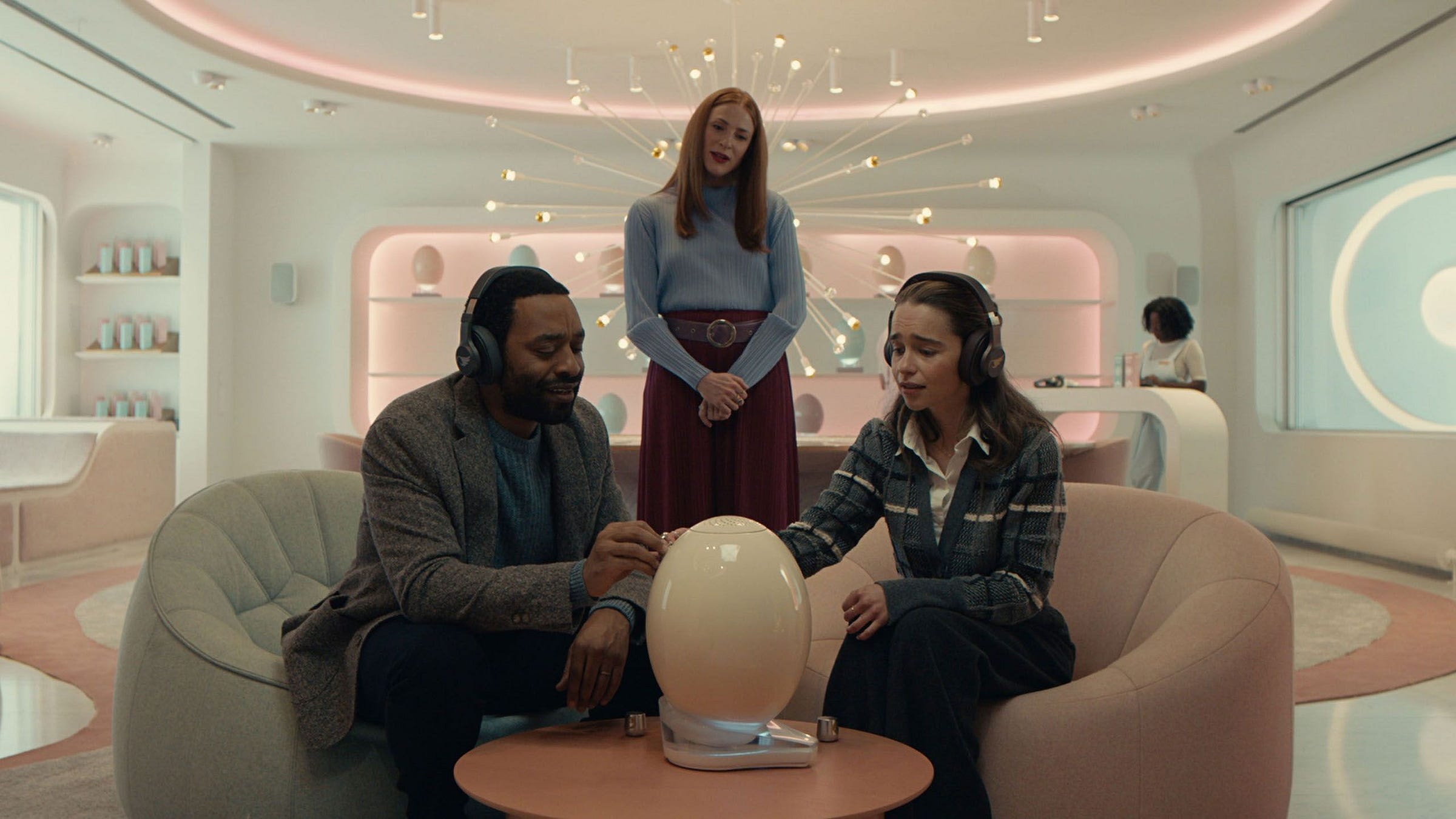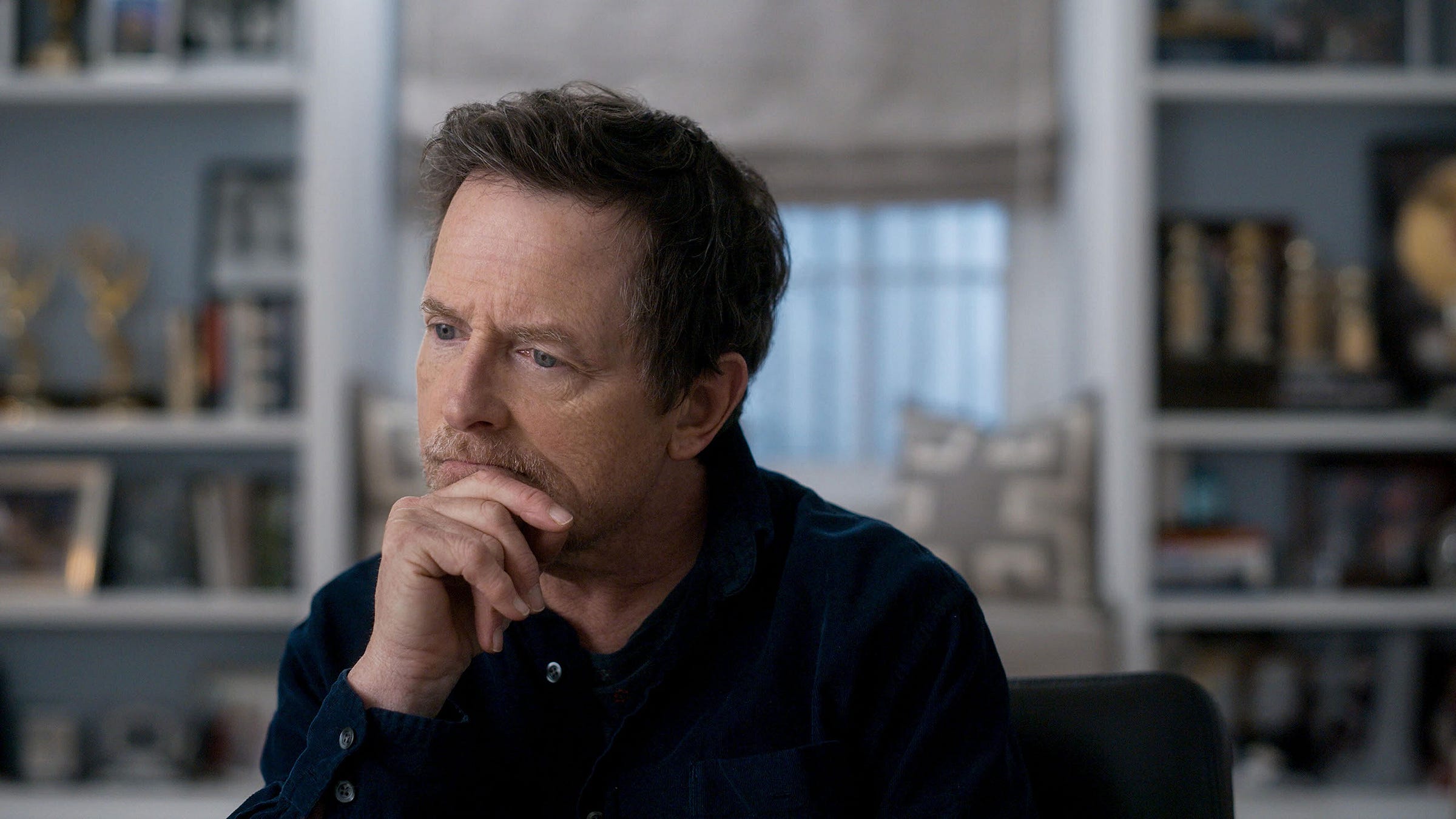Festival Dispatch #3: Pod Society 🍳
Our first pick of features from the 2023 Sundance Film Festival.
Quick heads up that this issue is extra long and will likely be truncated by your email client. For the best experience, read it in your browser!
Sorry, no, it’s not Friday. But it is [trumpet sounds] Sundance 2023! We’ve been hard at work over the weekend mainlining movies together, and we have some thoughts™️ about a whole bunch of them.
Today, however, you’re only getting a few — four capsule reviews from each of us. But don’t fret (or do, if you hate getting a lot of things in your inbox). We’ll be coming back to you a handful of times this week with more on the best of this year’s festival. Enjoy!
What Zosha’s been watching
Theater Camp
directed by: Molly Gordon and Nick Lieberman | written by: Noah Galvin, Molly Gordon, Nick Lieberman, and Ben Platt
You can make the case that Theater Camp is mostly a string of funny scenes with a loose structure holding the story together. After Joan (Amy Sedaris) falls into a coma (in the “first Bye Bye Birdie related injury” locally), her bro-y son Troy (Jimmy Tatro) takes over her theater camp, and is quickly faced with keeping the camp afloat. Meanwhile the staff is busy whipping the kids into shape for the big summer shows, including an original musical written by codependent best friends Rebecca-Diane (Molly Gordon) and Amos (Ben Platt).
Here’s the thing: It doesn’t really matter! Theater Camp is just a great comedy, a heartfelt Wet Hot American Summer clearly made with love. Wet Hot feels like an apt comparison not just because it’s all about the zany, untethered space we enter at summer camp. It’s also a credit to the cast, which is expansive, consistently funny, and probably all going places. The movie is a cult hit in the making (if it doesn’t become one of those Sundance darlings to explode out of the festival), and you should really tell all your friends to watch this show (I know I will).
Magazine Dreams
written and directed by: Elijah Bynum
It’s hard to deny that Magazine Dreams is a tense watch. Very quickly it becomes clear Killian Maddox (Jonathan Majors) is on a trajectory for chaos, as he tries to achieve his singular goal of being a champion bodybuilder. This feels true even as he’s seen in the gauzy opening montage, all dreamy and hazy even under the harsh stage lights. It’s a grim portrait, a man pushing himself to extremes and masking (barely) a ferocious anger underneath. In Majors’ hands, Killian is a powder keg, underpinned with a touch of softness and a pile of shame about all of it.
The problem with Magazine Dreams is that its story has the fatal flaw of relying too much on who the story wants us to think Killian is — or rather, what they want us to think he is, which is mentally ill. By the midpoint it seems the film is leaning pretty hard on that, letting it do all the heavy lifting of his choices. As a result, the second half feels a bit aimless, spinning Killian around and around with little to latch onto. There’s a sense Magazine Dreams wants Killian totally disoriented, but in the end it doesn’t know what to do with any of that aside from unmooring him further. For all the movie wants to be a Taxi Driver, but it doesn’t really have the focus of Travis Bickle’s world. And so Magazine Dreams propels itself towards the promise of its title, and flames out in the process.
The Pod Generation
written and directed by: Sophie Barthes
The Pod Generation is deceptively cheeky: The title is not a reference to any sort of real-life, beleaguered generational conflict about tech-addicted babies, but rather for the children born in the sci-fi world of the film, carried to term in little plastic egg pods. Rachel (Emilia Clarke) and Albie (Chiwetel Ejiofor) are a couple who choose this form of procreation, each with their own perspectives on its legitimacy. She loves the AI tech that envelops their world, while he, a botanist, wishes it would give him more space to connect to natural things. “We decided at some point, nature is a commodity,” he bemoans as they consider their baby options.
And he’s not wrong. This is a sci-fi world where even though the pods look like eggs and the pastel seats seem like nests, but plants are being replaced with holograms. Pod Generation holds a lot of these big ideas next to each other and manages, fairly carefully, to keep them in even balance through its runtime. This is not a story as simple as man vs. woman, tech vs. nature, opinion vs. opinion. Lines shift — between Rachel, Albie, their baby, and their world — almost constantly. And the result is that it manages to turn over its concept in a way that actually lets it explore it, being less about the destination than the journey. As the pair find new wrinkles in their process with The Womb Center, their decisions get new facets that they are alternately delighted and dismayed by. Turns out even in pod-based pregnancy, nature finds a way. In a less smart film, that would be a result far too pat or predictable. In The Pod Generation, it’s fun, nimble, and actually in the world born from its ideas (and what it means for the babies at the center of it).
AUM: The Cult at the End of the World
directed by: Ben Braun & Chiaki Yanagimoto
In 1995 terror struck Tokyo: A nerve gas attack on the subway perpetrated by a cult called Aum Shinrikyo. If you were unfamiliar with them (then or now) then AUM: The Cult at the End of the World is here to fill in the blanks, something it accomplishes at a fairly brisk pace. For an overview of some weird cult-y shit, this approach mostly works: The documentary is a survey of all the choices Aum made, each one insidious in its own right. Where a lot of docs spend a ton of their time on the setup to a cult, AUM features just a few talking heads to establish the sort of perfect storm behind Aum’s rise — whether that’s speaking to the economic plateau of the time or just more personal reasons one signs up. In its first half especially it makes the most of its limitations, using the same anime style Aum did in their propaganda to fill in the blanks on a kidnapping they perpetrated.
Where AUM struggles is its second half, as the horror of the cult’s actions continue to mount and the documentary barely has time to account for them all. It speeds through the subway attack and the ensuing chaos, never getting the chance to dig in on anything. It’s a shame, because while AUM is probably a good place to start if you want to learn about this specific history, it feels like a missed opportunity, ultimately another drop in the bucket of cult-y nonsense without anything to say.
What Cate’s been watching
Polite Society
written and directed by: Nida Manzoor
Very few films are as genuinely delightful as Nida Manzoor's Polite Society. A clever mashup of teen drama and heist film, the story centers on a young girl's quest to save her sister from an ill-advised marriage — all with a little help from her friends.
Ria Khan (Priya Kansara) is a plucky teenage girl with a fervent desire to work as a stuntwoman. Her older sister Lena (Ritu Arya) is an artist who recently dropped out of school, and is having a little trouble finding a new path. But when the golden boy of their tight knit British-Muslim community comes home looking for a wife, Lena gets swept up in a quick engagement and impending move to Singapore. It’s a development Ria refuses to accept, and sets about sabotaging at every turn.
The relationship between the sisters is the core of the film. Despite their age gap, they are extremely close, and each support the other’s dreams and ambitions. The film has a fantastical quality that plays with the tropes of martial arts films while encasing itself in the shape of a coming-off-age comedy. As Ria rebels against her sister’s impending nuptials, her protestations get wilder and wilder, prompting fury and frustration from her family. But the movie smartly finds room to validate Ria’s concerns while sowing seeds of doubt. It’s a thrilling depiction of the way teen girls are treated as flighty, frivolous and undeserving of serious consideration, while giving voice to why they should be believed.
But the real charm of the film is the tone. Ria lives in a world that is something of her own making. And she views the people around her as puppets in her own stage play. It’s a choice that leads to a rift with her school friends and eventually her sister. But Manzoor’s script combines the real and the imagined to create a tense mystery and familial dynamic reminiscent of Bend It Like Beckham with its own distinctive flair. Its combat set pieces are fun and engaging, with their own wider stakes that track throughout the film. But the time it matters, we’ve gotten a full narrative arc based solely around the execution of a tricky kick.
Polite Society has the same bouncy energy as Manzoor's excellent television show We Are Lady Parts. Her protagonist is self-assured and bold — a worthy addition to the lineage of Indian protagonists Mindy Kaling has made commonplace. Ria knows what she wants, who she is, and has no intention of being swayed from her path. It’s also just lovely to see teen girls being the heroes of their own stories.
Little Richard: I Am Everything
directed by: Lisa Cortés
The genius of Little Richard was that he innately knew what took the rest of us years to figure out. As one of — if not the most critical pioneers of what became rock n’ roll, Little Richard set the stage not just for the wholesale reshaping of American popular music, but for an understanding of how queerness has always been integral to the development of new creative and artistic endeavors.
Both Richard Penniman’s music and stage persona and music were flamboyant and loud. They took up space and insisted upon his existence. And despite his vacillation between his queerness and his deeply religious fear of God, he always found a way back to his true self.
As with many Black artists of the time, his music was watered down to be palatable for white audiences. White artists covered his music, muted his sound, and found more success doing so than he ever even dreamed to be. But his influence is nearly unending — the roots of it are still evident today. There would be no Rolling Stones, Beatles, David Bowie, or Boy George without him. The current flamboyant queerness of pop music stems from him too. Lil Nas X, Harry Styles, and Miley Cyrus don’t exist without the doors he kicked open. It’s ironic then that rock music came to signify a kind of aggressive masculinity that stood in stark contrast to everything he represented.
As the film states, here, there is less appropriation than there is obliteration. His ability to be attached to, make money, and be recognized for his creative work was taken from him. It’s an erasure the film seeks to circumvent.
Little Richard: I Am Everything contextualizes the way he shaped the entire spectrum of rock and roll music. The pioneers of rock and roll were black and queer, and Little Richard was at its zenith. He started it all and gave so much. So shut up and bring him his mirror suit.
Fair Play
written and directed by: Chloe Domont
There’s something so delicious about a battle of the sexes. Pitting a man and woman against each other and seeing who comes out on top is the theme of endless stories, precisely because it is such a potent wellspring of drama. In Chloe Domont’s feature debut, she takes this well-trod territory in a tense and wrenching direction, to devastating effect. The result is a high-wire act of ambition, lust, and jealousy that reveals the darkest churning undercurrents of misogyny.
When Emily (Phoebe Dynevor) and Luke (Alden Ehrenreich) get engaged at a friend’s wedding, they have to keep it a secret from the higher-ups at the hedge fund where they both work. They’re desperately in love, and can’t wait to ascend in their cut-throat careers. Then they’ll become the power couple they both aspire to be. But an unexpected promotion for Emily sends Luke into a spiral — triggering a descent into madness that nearly undoes them both.
Domont plays with music, costuming and light to elevate the shifting relationships between her characters — highlighting strengths and weaknesses on both sides. But it’s Emily’s eventual ascent as she asserts her rightfully earned place at the firm and in her relationships that truly make the film. She moves from supportive spouse to head of the class in one fell swoop. And in fighting to keep her position, she unearths her own power.
Dynevor gives a crackling performance as Emily. She plays her character’s growing realization of the imbalance of power in her relationship as fitfully and truthfully as possible, increasingly setting up boundaries where she realizes there are none. By the film’s final frames, she has taken charge of her destiny and her misdeeds are easily forgiven. Fair Play is an explosive and audacious debut that earns every second of its tautly wound twist and turns. Domont, who also wrote the film, is clearly a talent to be reckoned with, and Fair Play hints at the exceptional promise to come.
STILL: A Michael J. Fox Movie
directed by: Davis Guggenheim
By now, Michael J. Fox’s diagnosis of Parkinson’s disease is well known. After going public with his condition in 1998, Fox has dedicated himself to advocating for increased funding for the disease. What is less known, is how living with Parksinson’s affected an actor at the height of his career. In Still, Fox speaks candidly to director Davis Guggenheim about the breadth of his working life, and how his attempts to mask his disease derailed him before honesty and disclosure saved him.
Told through voice-over narration, talking head interviews and kinetic recreations Still is less a documentary than it is a creative rendering of Fox’s life. Interspersed with clips from his filmography, it tracks his beginnings as a short kid from Canada who loved drama, to his explosion onto the Hollywood scene in the sitcom Family Ties. Fox walks us through the way this big break led to others still, including of course Back to the Future. His fame peaked in the 80s and 90s. But his diagnosis in 1991 begins to shape the trajectory of his career.
Between marriage, children, and a progressive disease, Fox returned to television for 1996’s Spin City. In the present day, he explains his many tricks for masking his symptoms — notably the shaking in his left arm. Aided by the specifically timed intake of dopamine, he covers for himself by always being on the go. His characters fidget and twitch, not because he is shaking, but because they are always on the go. But the psychological toll is big enough that he takes solace in alcohol, to his detriment.
Many scenes depict Fox’s current physical therapy. Practice walking, grasping, and turning — all motions that become more difficult as Parkinson’s progresses. But he curiously never manages to be still. Not because of the disease, but because his mind is always on the go. He cracks jokes with ease, ragging on himself to dispel tension. But walking is where the contrast is shown most clearly. His therapist is always telling him to slow down — he’s been injured multiple times from falls and hits. But it’s almost as though his physical body has not registered that it now has limitations. He’s as ready to sprint forward as he ever was.
The final act of Still covers his post-diagnosis career, in which he simply starts playing characters with Parkinson’s disease. From Curb Your Enthusiasm to The Good Wife, he mines comedy from his condition, newly free from the burden of keeping it a secret. With Fox’s help, Guggenheim creates a compelling if perhaps unintentional narrative about the way disabled people are forced to contort themselves into a world that doesn’t accommodate them — and the possibilities that open up for them when it does.
Assorted Internet Detritus
If you’re just finding this newsletter, do us a favour and subscribe. It feeds our fragile egos. And if you’re already a loyal reader, help us out and tell a friend. Happy movie yelling!
Zosha + Cate <3
twitter:@30FlirtyFilm
instagram:@30FlirtyFilm













